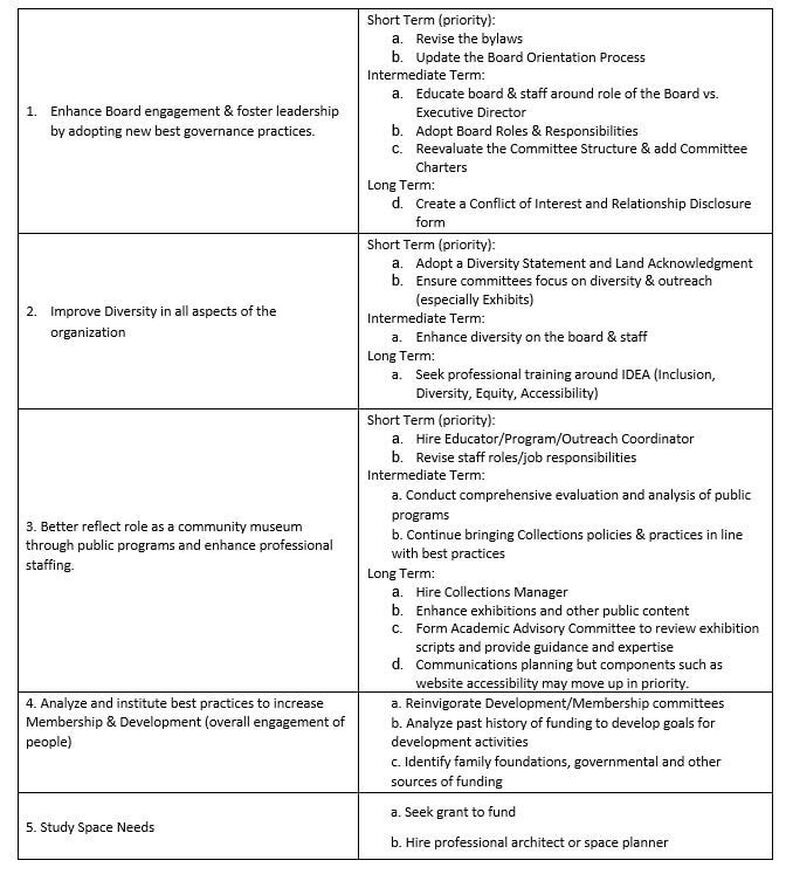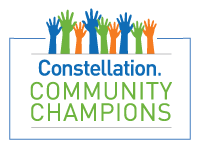Laurel Historical Society Mission, Vision, Values
Introduction
Founded on the banks of the Patuxent River in the 19th century, Laurel, Maryland, was Prince George’s County’s only factory town. Laurel today includes a historic district with several original mill worker’s homes, a Main Street with historic shops, and many period houses. In recent decades, exponential suburban growth has brought increasingly diverse residents, new neighborhoods, and commercial ventures to Laurel. Parts of four counties - Prince George’s, Anne Arundel, Montgomery, and Howard - comprise the Laurel area. Today, Laurel’s residents come from many different backgrounds.
The Laurel Historical Society is housed in a c.1840s mill worker’s house. Whether you have deep roots or moved to Laurel more recently, we work to preserve your heritage and to give space to all stories through engaging educational programs, exhibits, and other activities. We welcome and serve all members of the greater Laurel community.
Mission
To deepen the understanding of the past and cultural heritage of Laurel, Maryland to connect and inspire, for today and the future.
We fulfill our mission by:
Vision
Creating a community that encourages learning about all of our neighbors by collecting, storytelling, cultivating legacies, and sharing history and cultural heritage.
Values Introductory Statement: We consider our greatest strength to be both a past and future facing organization, serving the community in ways to engage with more diverse audiences. We carry the lessons learned from past and current events to inspire us to be active stewards of our community’s history as it happens, while encouraging and exploring different perspectives from across the Laurel community. We are welcoming, inclusive, and respectful of all.
Community We believe we have an obligation to promote collaboration, engage in dialogue and encourage participation in our work so we can learn from one another. We conduct our work with cooperation and mutual respect within the Society and within the Laurel community.
Inclusion We recognize the diversity of our community and aspire to reflect the full spectrum of our community in our collections, programs, staff, and governance. We believe that our past should inform our future, and that bringing together diverse groups of people can create new approaches to cultural understanding. We are committed to telling accurate and inclusive stories about Laurel.
Learning We pride ourselves on being a place for our visitors, staff, and volunteers to learn. We value our role as a resource for life-long learning in our community.
Preservation We care for the resources that have been entrusted to us for today and for future generations.
Founded on the banks of the Patuxent River in the 19th century, Laurel, Maryland, was Prince George’s County’s only factory town. Laurel today includes a historic district with several original mill worker’s homes, a Main Street with historic shops, and many period houses. In recent decades, exponential suburban growth has brought increasingly diverse residents, new neighborhoods, and commercial ventures to Laurel. Parts of four counties - Prince George’s, Anne Arundel, Montgomery, and Howard - comprise the Laurel area. Today, Laurel’s residents come from many different backgrounds.
The Laurel Historical Society is housed in a c.1840s mill worker’s house. Whether you have deep roots or moved to Laurel more recently, we work to preserve your heritage and to give space to all stories through engaging educational programs, exhibits, and other activities. We welcome and serve all members of the greater Laurel community.
Mission
To deepen the understanding of the past and cultural heritage of Laurel, Maryland to connect and inspire, for today and the future.
We fulfill our mission by:
- Collecting, preserving, interpreting, and researching the historical records and artifacts that document the history and culture of our community.
- Providing access to our collections online, in our library, and through outreach programs.
- Enhancing collections and public programs to better represent present-day and past life as well as the diverse communities in the Laurel area.
- Creating exhibits on the history, current activities, and cultural heritage of the Laurel area.
- Conducting lectures, discussions, and other public programs for adults, children, students, and families.
- Connecting with the community and stakeholders to broaden partnerships and collaborations on collections, exhibits, programs, and other learning opportunities.
Vision
Creating a community that encourages learning about all of our neighbors by collecting, storytelling, cultivating legacies, and sharing history and cultural heritage.
Values Introductory Statement: We consider our greatest strength to be both a past and future facing organization, serving the community in ways to engage with more diverse audiences. We carry the lessons learned from past and current events to inspire us to be active stewards of our community’s history as it happens, while encouraging and exploring different perspectives from across the Laurel community. We are welcoming, inclusive, and respectful of all.
Community We believe we have an obligation to promote collaboration, engage in dialogue and encourage participation in our work so we can learn from one another. We conduct our work with cooperation and mutual respect within the Society and within the Laurel community.
Inclusion We recognize the diversity of our community and aspire to reflect the full spectrum of our community in our collections, programs, staff, and governance. We believe that our past should inform our future, and that bringing together diverse groups of people can create new approaches to cultural understanding. We are committed to telling accurate and inclusive stories about Laurel.
Learning We pride ourselves on being a place for our visitors, staff, and volunteers to learn. We value our role as a resource for life-long learning in our community.
Preservation We care for the resources that have been entrusted to us for today and for future generations.


